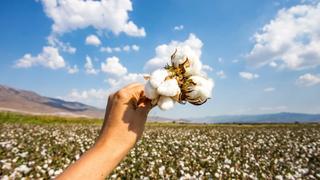India joining the global debate on genetically modified (GM) crops is a positive thing believes Leszek Borysiewicz, Vice-Chancellor of the University of Cambridge.
“What we have are scientific arguments….almost unanimous that this is a safe procedure that can be used to accelerate the normal processes that we use in plant breeding. We need to expedite these processes because the population of the world in 2050 will be 10 billion. We have 7.5 billion people today. We are expecting the food industry to deliver an improvement on a scale that is unprecedented in the history of mankind,” Borysiewicz told BusinessLine .
GM is not the only solution to improve yield but one that needs to be looked at, he stated.
“But in science one of the things that is really important is while we have the technology that is capable of doing it, there is a responsibility on scientists to show the public that it is genuinely a safe procedure to use and it is not going to be exploited as in the case of Monsanto in the very early days purely for financial benefit,” Borysiewicz added.
GM crops are already widely used for non edible crops and has seen a huge improvement, for example, in pesticide and insecticide usage, he stated, adding that if GM can help in reduce the usage of pesticide and insecticide that might be a huge betterment to food supply.
Borysiewicz was in New Delhi to sign an MoU with Bharti Foundation to conduct research to improve the yield of corn/baby corn in India.
Landholding sizeOn whether the shrinking landholding size in India would necessitate a different approach for research here, he said that the reduction in the holding is just one of the issues.
“The second is supply chain i.e. how you maximise the benefit for an individual farmer. It is not a challenge. What it requires is a slightly different way of thinking. This is the whole system’s problem. It isn’t just plant sciences, they will take the lead… also people from business management side who understand supply chain… all of these are actually important. Cambridge has the whole range of disciplines needed to tackle this.”
On whether research in agriculture in India is up to the mark, Borysiewicz said that the country has huge strength in the agricultural sciences, especially due to the the uniqueness of the Indian agricultural economy.
“If one thinks of most of the developing world…research done here is of great relevance than that done on gigantic crop fields in Canada or US or east of England,” he added.







Comments
Comments have to be in English, and in full sentences. They cannot be abusive or personal. Please abide by our community guidelines for posting your comments.
We have migrated to a new commenting platform. If you are already a registered user of TheHindu Businessline and logged in, you may continue to engage with our articles. If you do not have an account please register and login to post comments. Users can access their older comments by logging into their accounts on Vuukle.